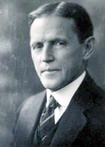CHAPTER XXIII
Eye Rest Through Sleep
THE health-building, strength-restoring influence of sleep is an important factor in those cases in which the condition of the eyes is particularly concerned.
Sleep restores the reserves of nerve force and gives an opportunity for exhausted tissues to rebuild and refresh themselves, and at the same time usually affords rest for the eyes. This is not always true, however, because one can strain the eyes during sleep. Persons with eye trouble, as well as all others who do not get the proper amount of rest from their sleep, should palm before retiring, in the manner described in "Errors of Refraction: Their Cure." How long the relaxation thus induced will continue in the individual case it is impossible to say, but some persons report great benefit from this practice.
Opinions vary as to the amount of sleep required. The truth is that different individuals vary in this respect. It is a well-understood principle among students of the subject that duration of sleep is not as important for constitutional purposes as depth of sleep. In other words, many hours of light sleep are not as refreshing as half that number of hours of profound slumber. Great depth of sleep means complete mental relaxation, whereas light sleep may mean dreams, or a degree of mental activity bordering on dreamland, which does not yield the same complete relaxation and the same degree of recuperation.
There are two primary factors involved in healthful sleep. First, the surrounding conditions, and second, the condition of the slumberer himself.
Darkness and quiet are essential to refreshing sleep. One may train oneself to sleep in spite of more or less noise. Yet the more quiet and peaceful the surroundings, the easier it becomes to arrive at a condition of complete mental and nervous relaxation. Sounds tend to excite the nervous reactions, which are disturbing.
In the same way, light interferes with restful sleep, for even though the eyes may be closed the lids are not entirely light-proof and a certain amount of light penetrates. This light is more or less stimulating and prevents absolute relaxation of the optic nerves. Complete darkness is much more conducive to sound sleep and, for this reason, one should avoid having any light best that one should retire fairly early in the evening and rise early in the morning. Sleep in the late morning, during several hours of daylight, is not conducive to complete rest. "Early to bed and early to rise," may not make a man wealthy and wise, according to the old saying, but it unquestionably does have some relation to making him healthy.
Fresh air is even more important than darkness or quiet as a factor in inducing restful sleep. The need for oxygen during the building-up processes of sleep is self-evident, but the influence of fresh air as a means of enabling one to sleep more soundly is not always appreciated. If you want to know what truly refreshing sleep, beginning as soon as the head touches the pillow, really is, try sleeping out of doors. The next thing to that is sleeping in a room with several windows wide open, so as to approximate the condition of outdoor life as nearly as possible.
In winter bodily warmth is a necessary factor in sleep. The feet, particularly, should be thoroughly warm. On the other hand, an overheated condition is always conducive to restlessness. Do not cover too heavily. The nerve pressure incidental to heavy coverings is disturbing. In other words, while warmth is necessary, one should have no more covering than is absolutely required to maintain warmth. Cotton blankets and quilts are extremely heavy, but have little warmth. Wool is light and, whether in the form of blankets or wool-filled quilts, is ideal for cold-weather use. Down comforters likewise provide warmth without weight. During the hot summer nights it is best to sleep absolutely without covering and sometimes even without any night apparel.
A reasonably hard bed with a good, firm mattress is preferable to undue softness of bedding. If one lies on one's back, it would certainly be better not to use a pillow. A pillow is likewise unnecessary if one sleeps on the chest, so to speak, or partially on one side. This is probably the best position for sound and refreshing sleep. If one sleeps on the side, then a pillow is desirable for comfort.
The best remedy for sleeplessness is probably a hot foot bath, as it draws the blood away from the brain. This treatment may be supplemented by cold cloths applied to the forehead in case of mental stimulation, emotional excitement or congestion of the brain due to any cause. A drink of hot water or hot milk will draw the blood from the brain to the stomach.
A condition of normal muscular fatigue is always favorable to slumber, and if you have taken the exercises described in another chapter and spent sufficient time out of doors either in walking or in any other exercise, you can almost depend upon a condition of healthy fatigue that will enable you to sleep well.
The air bath is another invaluable means of soothing the nervous system and bringing about a condition favorable to sleep. Simply remove all clothing for a half hour before going to bed, providing the room is not too cold.
In many cases a walk in the open air just before bedtime is to be recommended. Although walking for the purpose of exercise should be brisk and vigorous in order to be beneficial, the walk before bedtime for the sake of inducing sleep will be more effective if taken at a leisurely gait, especially if deep breathing is practiced during a good part of the walk.
